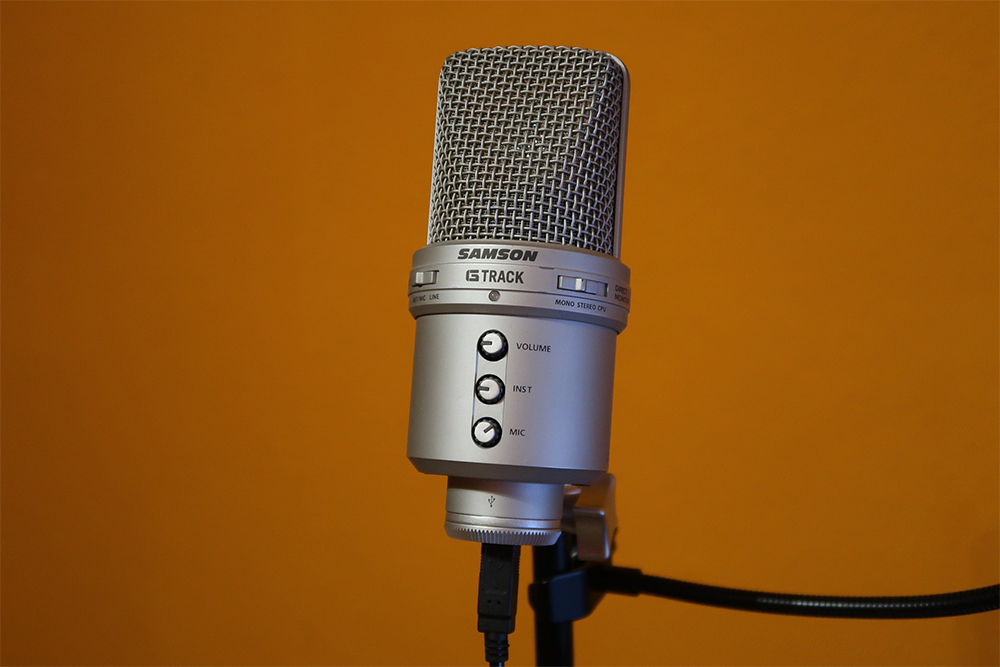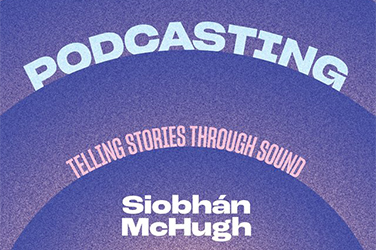
- Free Article: No
- Contents Category: Podcast
- Review Article: Yes
- Article Title: Audio evolutions
- Article Subtitle: Siobhán McHugh on podcasting
- Online Only: No
- Custom Highlight Text:
A book about podcasting prompts an immediate question: what is the intended audience? Is it for listeners already devoted to the audio medium? Is it for storytellers who already podcast and want to enhance their craft? Or is it for those interested in podcasting but clueless as to how to go about it? The Power of Podcasting, by Siobhán McHugh, attempts to appeal to all three audiences, with mixed results.
- Article Hero Image (920px wide):

- Featured Image (400px * 250px):

- Alt Tag (Featured Image): Astrid Edwards reviews 'The Power of Podcasting: Telling stories through sound' by Siobhán McHugh
- Book 1 Title: The Power of Podcasting
- Book 1 Subtitle: Telling stories through sound
- Book 1 Biblio: UNSW Press, $34.99 pb, 312 pp
- Book 1 Readings Link: booktopia.kh4ffx.net/zaDr26
The strength of the work is clear when exploring the history of the medium. These sections are, to put it simply, fascinating. There is a dearth of information (whether written or audio) about the evolution of podcasting as a storytelling medium, and McHugh provides a tantalising entry point. For lovers of storytelling – whether fiction and non-fiction – these in-depth sections are a delight. McHugh delves into the history of radio (including news commentary and sports broadcast) to explain the elements of podcasting as an artistic medium.
Radio clearly influenced podcasting. But how, exactly? And how does podcasting avoid the more unsavoury elements of radio, such as ‘gotcha moments’? McHugh lays out this history for her readers in a manner that lets her own experience with audio shine through. For example, when Orson Welles read his adaptation of H.G. Wells’s The War of the Worlds on CBS Radio the night before Halloween in 1938, panicked listeners rang the police to see if an alien invasion had begun. This is a striking reminder of the fundamental similarity between audio and the written word: when a story is told without pictures, the reader and/or the listener is free to imagine whatever they choose.
McHugh’s detailed explanations of how audio can transform words are profound (and may well challenge those who prefer to read the stories they consume). This is another strength of The Power of Podcasting – the accounts of how a story makes it to publication, including the manifold decisions of the podcast producer (who is essentially the ‘author’ of a podcast), are moving. A prime example is McHugh’s description of the process of interviewing a female Australian veteran of the Vietnam War. Both print and audio versions were created, and although both were based on the same interview, each has a different impact for their audience.
However, when the book veers into lists of ‘how to podcast’, the momentum is lost. To go from a riveting discussion of the power of audio storytelling to an exhortation such as ‘Let’s podcast – with passion!’ is distracting, to say the least. These phrases, presumably written to segue between the heart of the book and the bolted on how-to elements, break the rhythm. The how-to sections are valuable, to be clear, but an appendix would have prevented the narrative from being interrupted and still provided practical steps for those new to podcasting.
Serial, This American Life, The Daily, and other global podcasts feature prominently, with good reason. They represent watershed moments in the evolution of audio storytelling, and arguably laid the foundation for podcasting as an artform. Australian podcasts – and we have world-class podcasts here – are also explored. However, McHugh’s focus on three podcasts from The Age and Sydney Morning Herald stable (Phoebe’s Fall, Wrong Skin and The Last Voyage of the Pong Su) felt too much. McHugh was intimately involved in the development of all three, but no matter how storied or acclaimed, The Age and The Sydney Morning Herald do not represent all narrative journalism in Australia. An examination of the research, approach, and technique behind other (competing) true-crime Australian podcasts would have represented a valuable new dimension. For example, a critique of Teacher’s Pet (The Australian) or Trace (ABC) would have lifted The Power of Podcasting to a new level. Examining these seminal Australian podcasts would have been an opportunity to extend discussions that appear elsewhere in the book, such as: who is the best host for a podcast? How does the choice of host change the story? And most importantly, it would have enabled McHugh to delve into the murky ethics of true crime narrative storytelling.
The Power of Podcasting will offer unexpected insights for lovers of the written word. McHugh draws out the links between contemporary podcasting and the development of literature in the nineteenth century, including the use of serialisation to hook an audience (think of Charles Dickens). Podcasting is also a form of literary journalism (yes, you read that correctly, literary journalism), and McHugh’s analysis of how the New Journalism movement of the 1960s and 1970s influences narrative podcasting today begs to be read. Throughout the text, avid readers will recognise the names of the authors they love and may be surprised at their podcasting endeavours. For example, The New Yorker’s Patrick Radden Keefe, author of Empire of Pain: The secret history of the Sackler dynasty (2021), is also the voice behind Winds of Change, a podcast exploring how the CIA attempted to use music to bring about the end of the Cold War.
The Power of Podcasting is a reminder that audio storytelling is an art form. It can change minds and influence opinions, and its reach is vast. The audience for a moderately successful podcast is much larger than the audience for the average book published in Australia. McHugh herself is an example of how dedicated storytellers cross media, always seeking out the best way to tell a story. Not only is McHugh an award-winning podcaster, she is also the author of four social history works, and she was awarded the Douglas Stewart Prize for Non-Fiction in the New South Wales Premier’s Literary Awards.


Comments powered by CComment